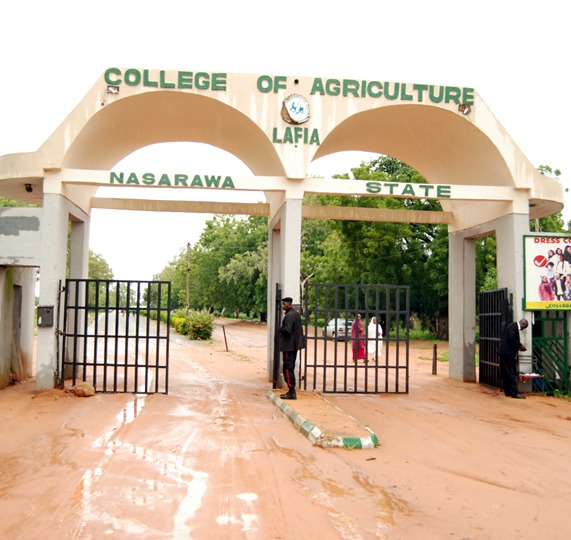How It All Started!
Among the most important institutions in the revolutionary development of agriculture over the last 50 years are the colleges of agriculture. As brain centre for agricultural progress, they provided with their research efforts the scientific knowledge base, their training increased the quality of the human agent of production, and in many cases; their extension activities brought new knowledge down to the peasants.
College of Agriculture, Lafia was established in 1977 under the then ministry of Agriculture, Jos, Plateau State as a Training School. It was mandated to train Agricultural Extension Workers for middle manpower requirement of the State. The institution was elevated from the status of a school to that of the College through Edict No.13 of 1987. This change in status empowered the institution to offer courses leading to award of National and Higher National Diploma Certificates. This also marked the beginning for autonomy to the college which was in line with Federal Government policy on the establishment of tertiary institutions in 1985.
The creation of Nasarawa State out of Plateau State in October, 1996 gave birth to promulgation of Edict No. 15 of 1998 which stated clearly the mandate of the institution and was signed into law by the Military Administrator of Nasarawa State. The College which started with only two Departments (General Agriculture and Home Economics) now has eleven (11) departments and runs fifteen (15) Academic programmes. Other non-academic departments which perform essential functions within the college include: the Registry, works, Bursary and Library Departments.

The institution is guided by the College Edict, Conditions of Service and the Students Handbook. The Edict provides for the Governing council and the Provost as Chief Executive of the Institution. The provost is assisted by Management and management Advisory Committee which comprises of the Deputy Provost, the Registrar, the Librarian, the Bursar, the Director of works and all Deans.
The Academic Board is bestowed with responsibility of supervising and legislating on matters that affect academics. It admits and award certificates in addition to roles it plays to enhance quality education/assurance.
The Board has the mandate to create more academic programmes and departments.
